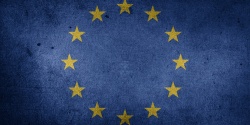Published: 18.08.2022

· There has been a so-called dispute over the rule of law between Poland and the European Commission since 2017.
· In recent weeks, the European Commission has published another edition of the "Report on the rule of law", in which it repeats the accusations against Poland and makes recommendations aimed at improving the state of the rule of law.
· They include, among others actions that may limit the use of the citizens' legislative initiative.
· The Ordo Iuris Institute, in response to the Report, prepared a study which shows that there is no legal definition of the rule of law and that the actions taken by the Commission may violate national competences.
The EC report covers a very wide range of topics - from the judiciary to broadly understood civil society and media concessions. Most of the objections are formulated very generally, based on unmeasurable or biased criteria. The Commission also addressed a number of recommendations to Poland, which, in its opinion, were to improve the rule of law in our country. One of them is "improvement of the conditions of operation for civil society", by which the European Commission understands - as it may seem in the light of the document - restriction of the possibility of exercising the right to civic legislative initiative contrary to Polish regulations. These conditions are to take into account "European standards for civil society.
The commission also accused Poland of allegedly promoting a project of a citizens' legislative initiative "targeting LGBTIQ persons". In fact, no such project was promoted by the Polish authorities. Only the project aimed at limiting the possibility of promoting activities questioning family values, mainly by the LGBT movement, was allowed to proceed. It is a normal procedure, resulting from the fact that the project promoters meet all formal conditions.
The Ordo Iuris analysis indicated the lack of a legal definition of "the rule of law" among the values specified in Art. 2 of the Treaty on European Union. In fact, this undermines the entire mechanism and all procedures related to the protection of the rule of law that the European Union has undertaken and is still undertaking. The institute also noted that the Commission selectively approaches the problem of violations of the rule of law by member states. For example, it tolerates the fact that in Germany important functions in the judiciary are performed by politicians from the ruling party, which is impossible in Poland.
Ordo Iuris also points out that the European Commission does not have the competence to act to protect the rule of law by actually imposing specific systemic, administrative and legal solutions on a given state. In the absence of a uniform definition of the rule of law, the diversity of the member states, also in terms of political culture, is of great importance. This is influenced, among others, by different historical experiences or different institutional background.
"Considering the steps taken so far by the European Union, the jurisprudence of the Court of Justice of the European Union, as well as the proceedings pending by the Polish Constitutional Tribunal, the key to ending the ongoing dispute and maintaining the Community character of the European Union seems to be not only the development by the Member States of a consensual definition of the rule of law that would be included primary law of the EU, but above all a return to respect for the principles underlying the EU - equality, democracy, unity in diversity, including cultural and legal diversity, ”emphasized Anna Kubacka, an analyst at the Ordo Iuris Center for International Law.

09.04.2025
• On April 8, the Ordo Iuris Institute presented the Polish version of a document with proposals for reforming the European Union, prepared jointly with Hungary’s Mathias Corvinus Collegium (MCC).

08.04.2025
Sixth Court Hearing Ends Without Progress

07.04.2025
In response to the liberal left’s self-proclaimed “militant democracy” in Poland and
